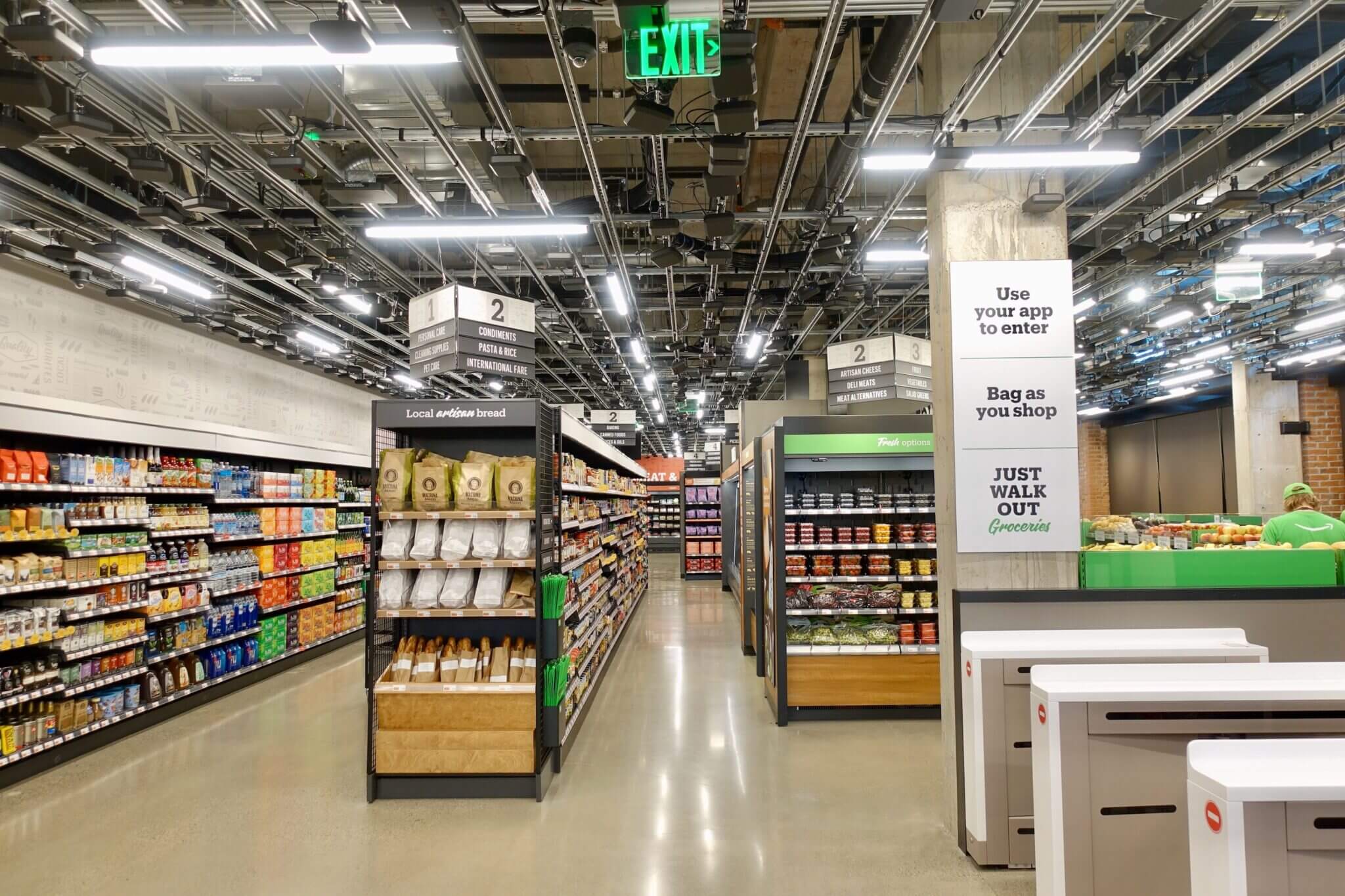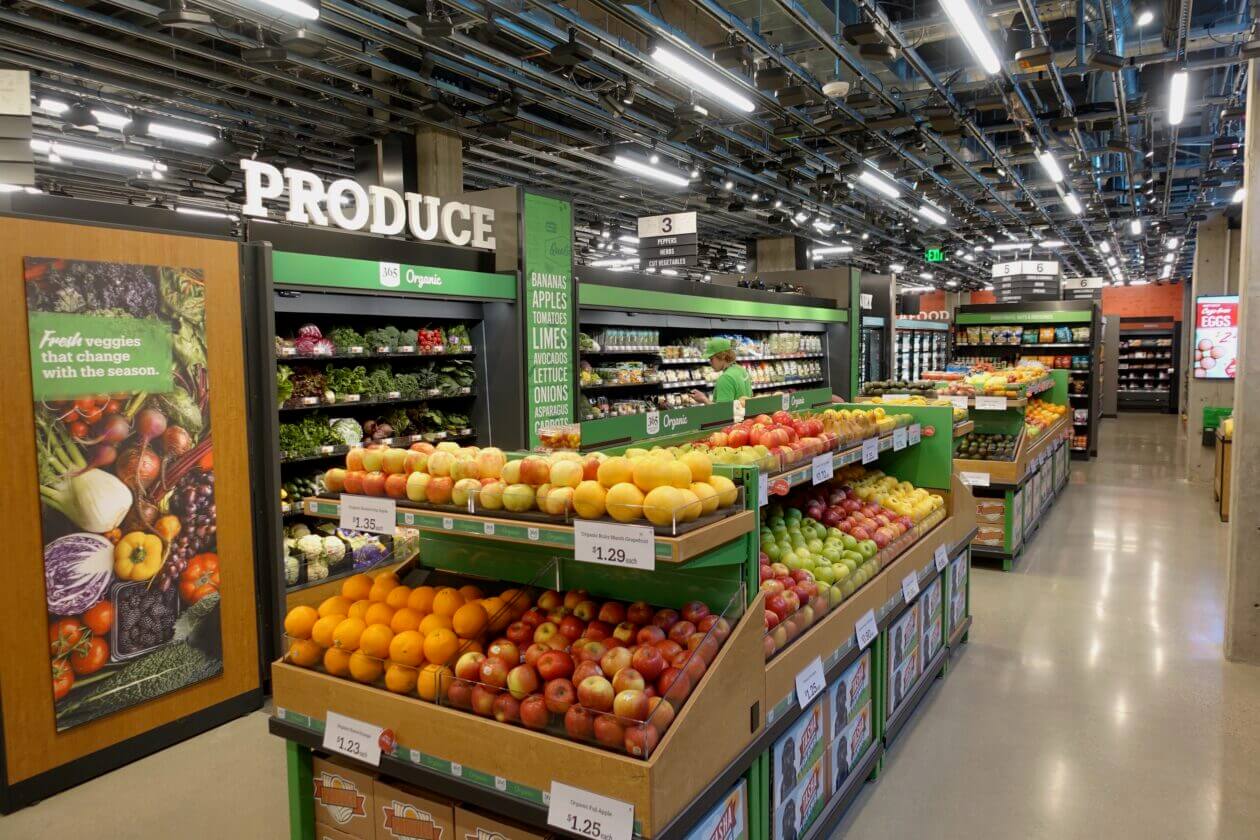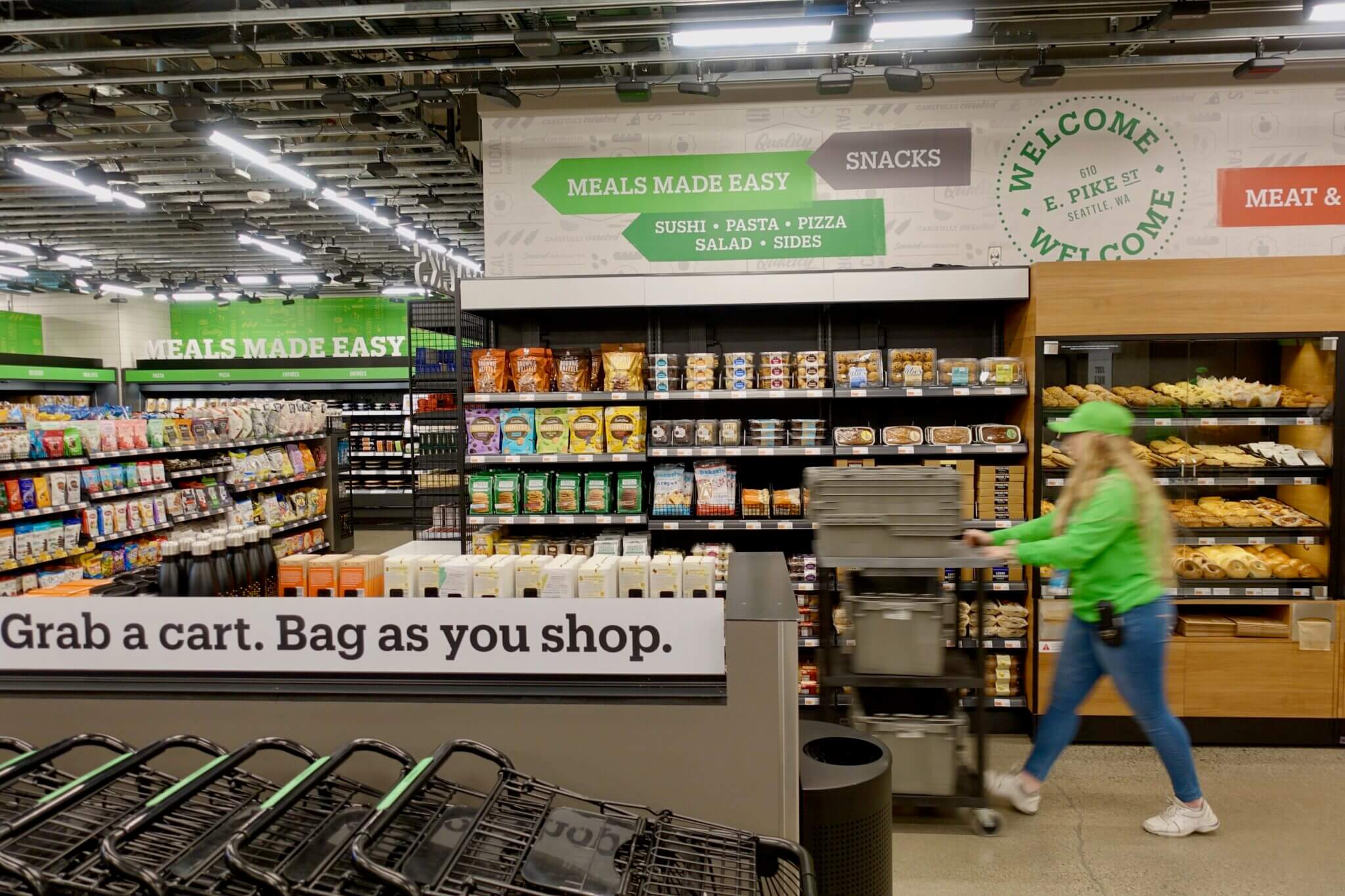The big picture: Amazon Go allows users to shop with no lines, no checkouts and no registers – simply open the Amazon app on your smartphone, scan it when entering the store, grab what you need and go. Items you leave with will be billed to your Amazon account.

It’s been a little over three years since Amazon launched its first cashier-free convenience store. The concept took a big leap on Tuesday with the launch of Amazon’s first full-on Go grocery store in Seattle. The 7,700-square-foot facility at 610 E. Pike Street in Seattle’s Capitol Hill neighborhood isn’t just a bigger version of the convenience store, however.

Dilip Kumar, vice president of physical retail & technology for Amazon, said it offers a much more expanded selection that caters to what people are looking for when shopping for groceries. “What Amazon Go did for central business districts — like locating it very close to where people work so you can get breakfast, lunch, snacks — Amazon Go Grocery does the same thing, but closer to home,” Kumar added.
The executive wouldn’t tell GeekWire how many more Amazon Go Grocery stores are in the works, where the next one will be built or if they will all be the same size but one has to think that this isn’t a one-and-done run. Amazon is simply too invested in the physical retail space now, what with its 2017 acquisition of Whole Foods and all.

Locals can check out the new Amazon Go Grocery store from Sunday through Thursday, 7 a.m. to 11 p.m. and on Friday and Saturday from 7 a.m. to midnight.
All images courtesy Kurt Schlosser, GeekWire
https://www.techspot.com/news/84150-amazon-opens-first-full-sized-cashier-free-grocery.html